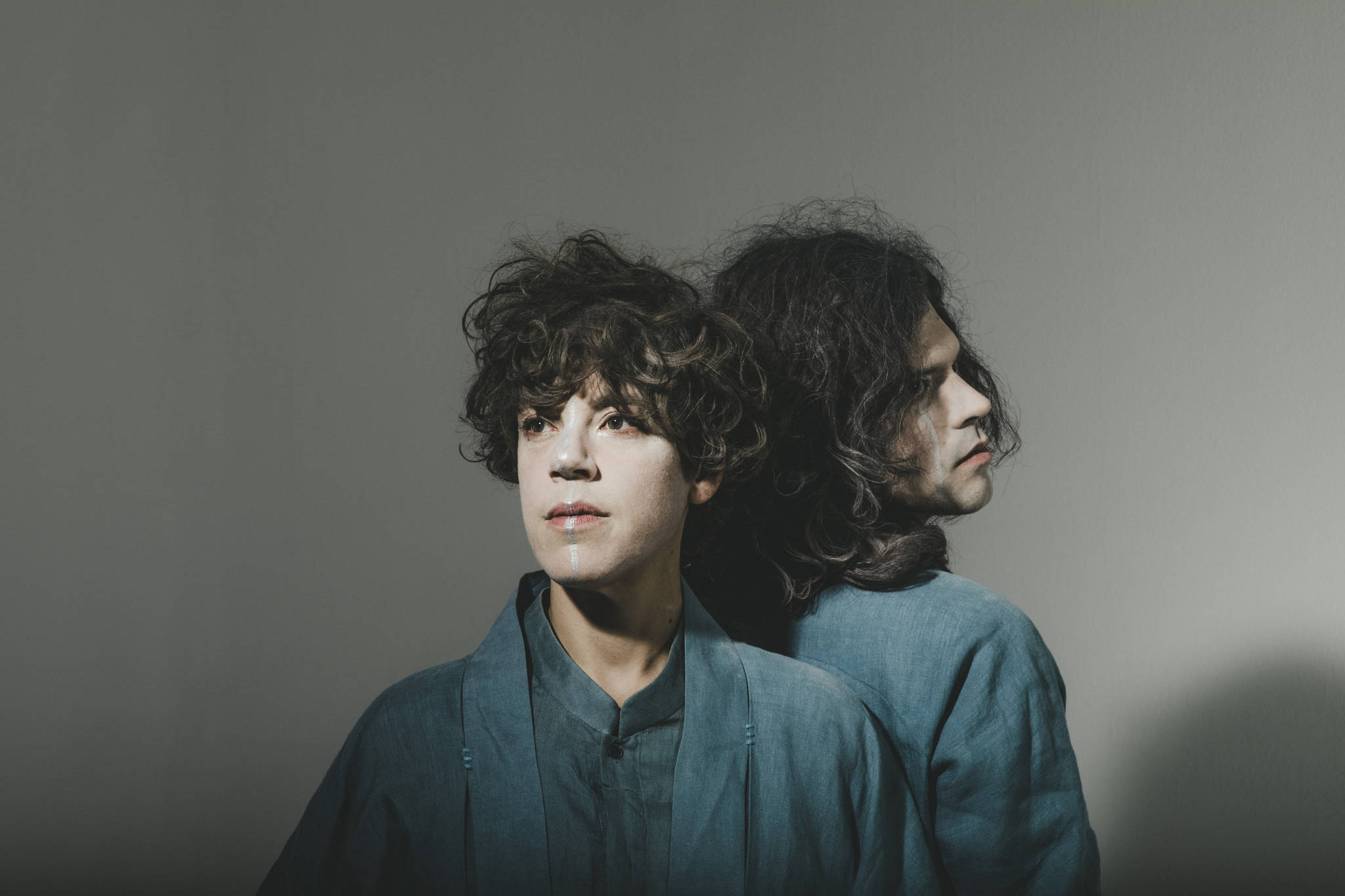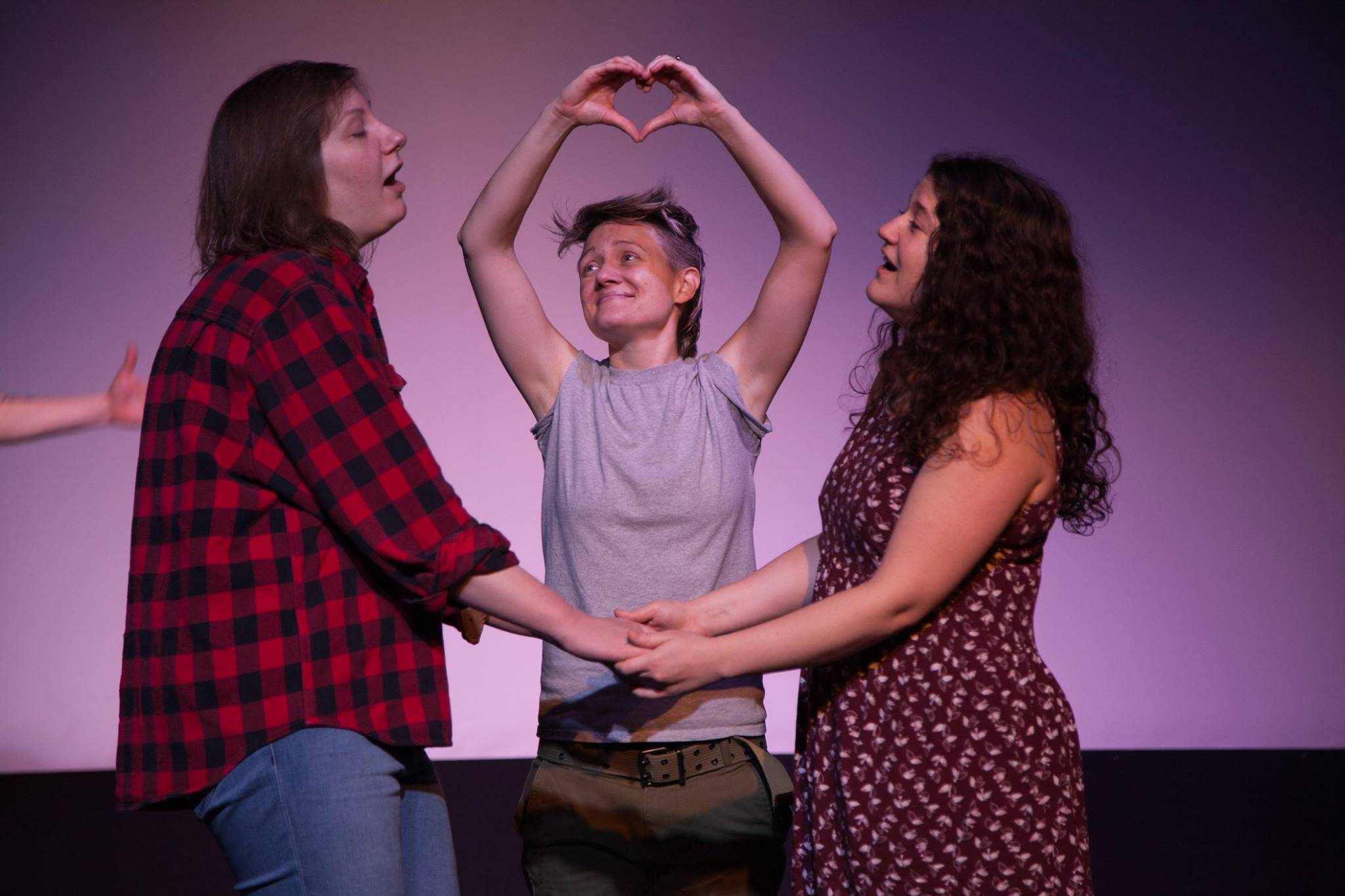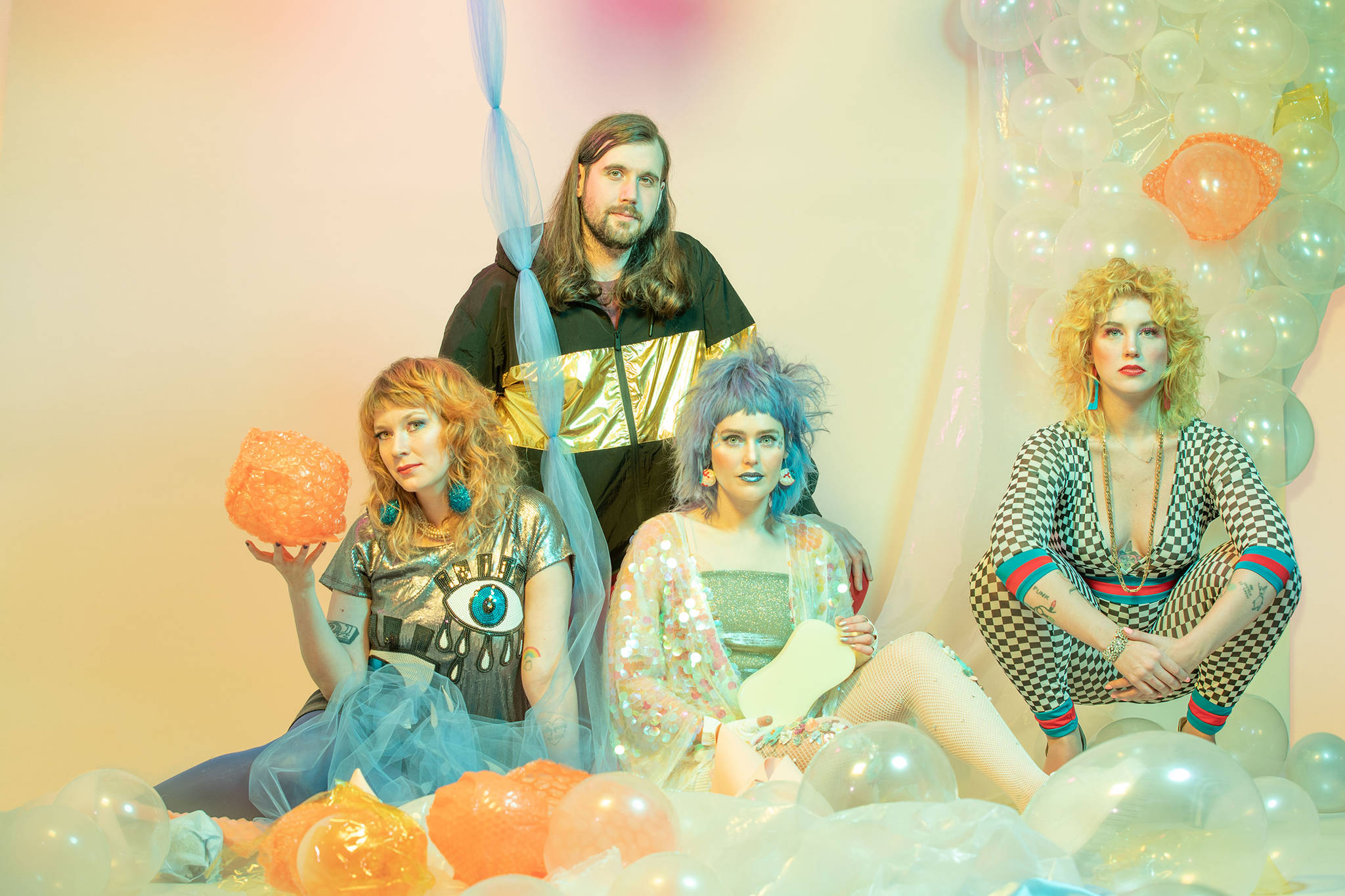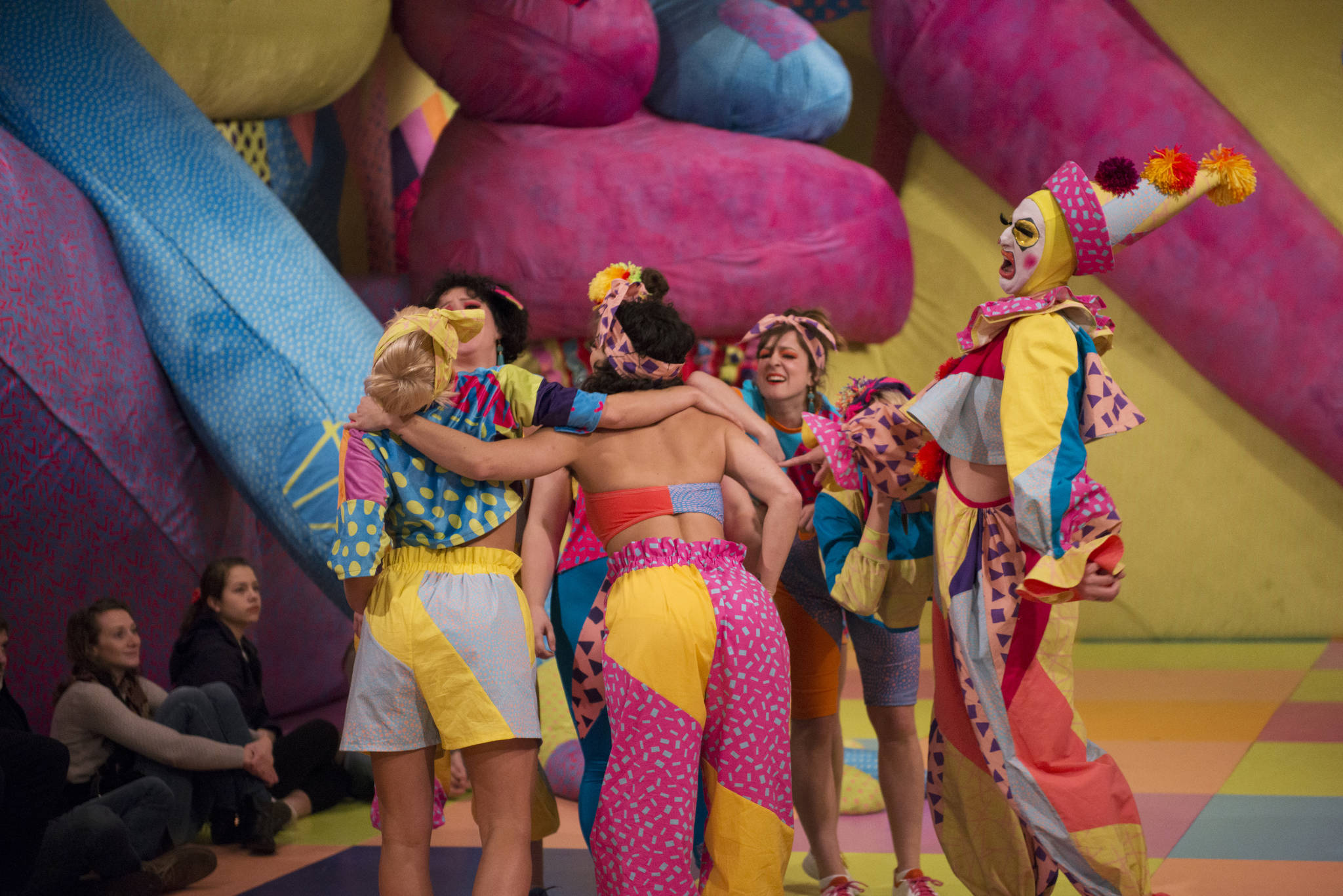Since bursting onto the scene in 2011 with Whokill, Tune-Yards has been heralded for its ability to draw on eclectic array of world music and African rhythms to create a free-form brand of dancy art pop. Driven by Merrill Garbus (with collaborator/bassist Nate Brenner), the Oakland-based group’s songs clatter with an infectious energy of global sonic exploration regardless of whether each individual tune leans in a more rock, pop, folk, or funk direction. But being a self-aware creative force, Garbus has realized the potential moral and social conflict of using elements of culture that are not her own. The latest Tune-Yards album I Can Feel You Creep Into My Private Life (released in January on 4AD) not only expands the group’s sonic palette with more electronic touches, it also confronts the relationship between Garbus’s whiteness and the music she creates. Songs still pop with energetic flair, but do so while dwelling on subjects like unearned white exceptionalism (“Now As Then”) and unflinching meditations on police brutality (“Honestly”) that don’t offer the comfort of absolution.
There are things that America can glean from soaking in that sonic discomfort and not turning away.
Before Tune-Yards heads to town for one of its always-blissful dance party concerts at The Neptune on Oct. 23, we chatted with Garbus about how she’s consciously dealing with making world-influenced music as a white woman.
Now that I Can Feel You Creep Into My Private Life has been out for almost a year and you’ve had the chance to experience the songs live, have your feelings about the music changed or shifted?
Yes, there’s a new relationship with these every day because I think there was a lot before the 2016 election, during the election, and after the election. These songs were all written in that time frame — right when Trump was getting elected — where there was still this real liberal idea that Americans aren’t racist. [Laughs] And I’m laughing not because it’s funny. We are in an extreme time of extreme white supremacy. So the urgency of these songs [are also] a real plea.
We were just opening for David Bynre, and we were performing for mostly white audiences and the people we could see in the front section were presumably older white people with money who could afford those seats. And I found myself really using certain moments of songs — like in “Colonizer” there’s a moment where we have a kind of breakdown jam section that accelerates and accelerates and builds and builds, and I found myself in a position of really pleading with people to look at themselves. That it’s not as simple as voting on the “right” side, the correct side. That’s not enough.
So the songs feel both more urgent, and I think, for myself, there’s a bashfulness that comes along with being white in terms of talking about race. I don’t know how to talk about race. I’m white, so I don’t have a race. [Laughs] But I’ve really been working on that. Understanding something that I felt for a long time intuitively, but now know logically — that racism in this country is a white problem. I identify as white, and I gotta deal with this. I have to be part of the solution. It doesn’t exclude anyone. No one’s off the hook. We owe it to our society, and to each other, and to the next generations to work on this and ourselves.
You brought up “Colonizer,” which repeatedly refers to your “white woman’s voice.” When I first heard the song, it was before the release of Sorry to Bother You (featuring a soundtrack by Tune-Yards and director Boots Riley) which centers on the idea of “white voice” in a very different way (how people of color will “put on the white voice” for society’s ease). Were the two interconnected at all?
I didn’t notice until the movie came out. [Laughs] I mean, that sounds so naive, but I’ve been thinking about white voices and what a white voice is for a really long time, being a white singer who’s very influenced by black music. So that as a concept and an issue has been a through line for a very long time. The idea of people of color feeling the need to put on a white voice is the other end of the spectrum of exploring what a white voice is than from what I, as a white woman, was exploring. But it’s the same concept, and there it was: the “white voice,” that phrase, is used so much in Sorry to Bother You, and then I have this song where I say “I use my white woman voice” over and over again. It makes sense to me that artists come to the same concepts around the same time, because of course. As a cultural concept right now, we’re totally examining what whiteness is: how people of color interact with whiteness and how white people interact with whiteness.
How do you approach incorporating things you love from cultures that are not your own into your music while still trying to avoid feeling like you’re stealing from or appropriating those cultures?
That’s the million dollar question. [Laughs] I’ll say this: I have become much more cautious, maybe “considerate” is the word, about what I take.
For instance, you know Tanya Tagaq? She’s a Canadian Inuk throat singer. I saw she posted a thing a couple days ago that was a crowdfunding thing that a vegan activist was doing to drum up awareness about plant-based eating and its relationship to climate change. She was crowdfunding to cross some crazy part of Canada by snowshoe or something. So there’s this white woman vegan doing this, and Tanya Tagaq tweets this and says she should crowdfund the median income of Nunavut and try being a vegan in Iqaluit where they eat animals, animal fats and animal meat, to survive the winter in the Arctic. There is a way that white people go like, (in a tone of “nice” condescending superiority) “Oh, you just don’t understand. I’m trying to do something good here and positive.” And I think what a lot of people of color are saying is, “Why don’t you ask us? Why don’t you talk to us? Why are you coming from white supremacy and continuing to walk over the stories and truths and histories of people who have been oppressed and dominated for centuries by white people?”
The reason I’m bringing that up is, for the most part musicians steal from each other. If you’re a good musician, you have a good ear, and you’re naturally absorbing a lot of the sounds that you’re hearing. So let me never forget that I’m a white woman with privilege. Let me never forget. I could focus on all the ways that I too live in patriarchy and live in oppressive conditions, but let me not forget that I’m signed to a record label, and have educational privilege, and have financial privilege. I can never forget that.
There’s so much that’s beautiful in music making, but I mostly hear from white people about how beautiful multicultural exploration is. [Laughs] It can be an excuse. I hear it as an excuse. I hear people wanting to excuse my music and give me permission, and I know that comes out of love and appreciation. But it’s not about shame and it’s not about guilt.
The key is why do white people do this more often? Why do white musicians — and white people across American culture — adopt the cultures of people of color. And I’m going to suggest it’s because white culture is a vacuum of culture. There’s nothing there. Because when we became white, we ditched all of our cultural heritage to become white. So that to me is what’s interesting about it.
I don’t want to call out musicians, I want to call in musicians to really examine what they’re doing.
As to what I do? I’m talking to you about it. [Laughs] I do not have an answer. And I don’t want to take away that absolute beauty of learning music from others around the world. I want to learn Ukrainian folk songs. I want to learn more Haitian drumming. I want to learn and learn and learn and learn and learn. But I also really want to be clear that I’m white and doing this.
Is there anything else you’d like to add about the tour?
I just want to mention that we’re out with U.S. Girls, and I have learned to expect the unexpected from Meg [Remy, aka U.S. Girls]. I think we’re both going to bring out the best from each other. This feels like a really loaded and heavy time — and perhaps a terrible time [laughs] — to try and tour this country.
Meg and I did a pretty bold move at our Rolling Stone streamed interview the other day (the pair prepared lines for the Q&A and then had two men perform the interview for them). I think we’re egging each other on — and she’s certainly egging me on — to be disruptive during this time; to balance coming to a show and really wanting to enjoy dancing and music and coming together, which is so important, but also to really be comfortable with being uncomfortable. Because stuff’s not right right now. So I’m ready to be surprised, and I hope that makes people excited to come join us.
Tune-Yards
Tuesday, October 23 at 8 p.m. | The Neptune | $28–$34 | stgpresents.org








